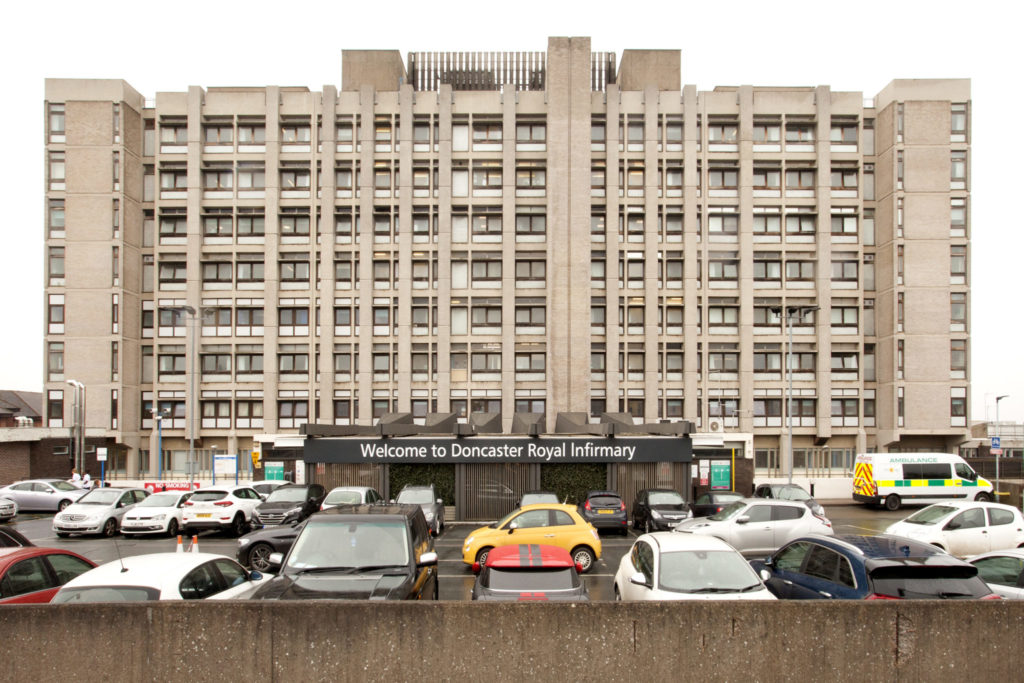It is envisaged that the investment in the state of the art surgical robot will transform the way DBTH performs cancer surgery, specifically for colorectal cancer patients in the first instance.
Colorectal surgery is the field of medicine that deals with repairing damage caused by colorectal diseases. Surgery can be necessary due to a variety of health problems along the gastrointestinal tract, in your rectum, anus and colon.

Operated by a surgeon, a camera inserted inside the patient and robotic arms are controlled from a console using an advanced set of instruments for a minimally invasive surgery. This procedure allows for greater precision than traditional laparoscopic (also known as ‘keyhole’) or open surgery.
Colorectal Consultant Surgeon and Lead Clinician for Gastrointestinal Surgery, Miss Antonia Durham-Hall said of the development: “This is one of the most significant investments made in the advancements of surgery at DBTH and it will transform colorectal cancer surgery for our patients.
“As improvements are made in the early diagnosis of cancers it is extremely important that advancements are also made in how we treat them, so patients can go on to have a good quality of life post cancer surgery.
“The introduction of robotic surgery will significantly improve outcomes for patients following their surgery, such as faster recovery times, reduced length of stay, and a reduction in the chance of a conversion to open surgery. In some types of tumour, there will also be improved cancer outcomes. There will also be a decrease in patients who experience problems with urinary and sexual function after rectal surgery and a reduction in those needing a long-term stoma.
“I’m extremely pleased that we will be able to offer this to our patients in the near future and thankful to the Doncaster and Bassetlaw Teaching Hospitals Charity for such a significant investment.”
Colorectal patients are set to benefit from robotic cancer surgery as soon as the robot arrives early next financial year, as a member of the DBTH colorectal team is already a trained autonomous robotic surgeon. Three additional colorectal surgeons are due to begin training next month, and all four colorectal surgeons will be able to operate independently on the machine within six months.
Richard Parker OBE, Chief Executive at DBTH, said: “Investing in robotic surgery is not only important for improving outcomes of our colorectal cancer patients, but also absolutely critical to attract and sustain anaesthetists, surgeons and theatre staff at DBTH now, and in the future. Robotic surgery will soon become part of the core curriculum, and without the robot, we could lose the ability to train some specialist trainees.
“At DBTH we’re very proud to train 25% of the medical workforce in South Yorkshire and providing good quality trainee experiences are central to our workforce recruitment plans. We know if trainees have a positive experience at DBTH we will go on to be their employer of choice when they qualify.
“We want to express our thanks to all the supporters of the Doncaster and Bassetlaw Teaching Hospitals Charity, including the Fred and Ann Green legacy – their support has helped to facilitate a transformative investment in care for our communities.”
If you have any other questions about how you can get involved with supporting DBTH, you can contact the Fundraising and Communications Team on 01302 644244 or dbth.charity@nhs.net.
*The standalone cost of the robot is £2m. The charity is funding the robot, training and all the service requirements of the robot for the seven year contract.

Notes:
In 1998 Fred Stanley Green, a retired pork butcher in Mexborough, died at the age of 95. In his will, he bequeathed £11.5 million to Doncaster Royal and Montagu Hospital NHS Trust, to be used for the benefit of Mexborough people.
Over the last 26 years Fred and Ann Green’s £11.5m legacy has enabled the Trust to provide many services and facilities that would not have been possible without it. The shuttle buses connecting the hospitals, Montagu Hospital’s Fred and Ann Green Memorial Garden, the Eye Department at DRI, the Rehabilitation Department at Montagu Hospital (which has supported the recent expansion to the Mexborough Orthopaedic Centre for Excellence) and numerous other projects all owe some or all of their existence to the bequest.



